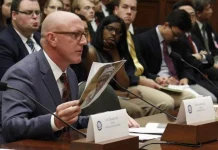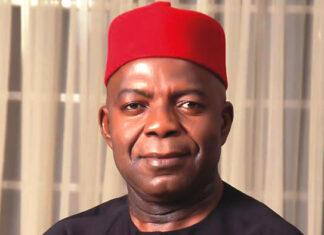In a decisive move to restore integrity to Nigeria’s digital governance ecosystem, the National Information Technology Development Agency (NITDA) and the Independent Corrupt Practices and Other Related Offences Commission (ICPC) have joined forces to form a Joint Task Force on Digital Governance and Anti-Corruption.
This is a bold initiative aimed at curbing corruption, enforcing compliance, and ensuring that government IT investments truly serve the people.
The partnership was unveiled in Abuja during an official visit by NITDA’s Director-General, Kashifu Inuwa Abdullahi, to the ICPC Chairman, Dr Musa Adamu Aliyu (SAN).
The collaboration, both leaders noted, is strategically aligned with President Bola Ahmed Tinubu’s Renewed Hope Agenda, particularly his drive to build a $1 trillion digital economy anchored on accountability, efficiency, and transparency.

A Costly History of Failed IT Projects
For over two decades, Nigeria has witnessed billions of naira vanish into failed or abandoned IT projects.
Agencies have repeatedly procured overlapping or unvetted solutions, often without clearance from NITDA.
The result has been duplicated systems, inflated contracts, and wasted taxpayer funds.
Dr Aliyu lamented that such practices “undermine both public trust and economic progress,” calling corruption in IT procurement “a silent saboteur of Nigeria’s digital advancement.”
A New Era of Accountability
The newly formed Task Force is designed to close those loopholes once and for all.
It brings together NITDA’s technical oversight with ICPC’s investigative and prosecutorial powers, creating what Abdullahi described as “a national safeguard” for IT governance.
According to NITDA, the Task Force will focus on three core mandates:
Enforcing IT Project Clearance: Every Federal Public Institution (FPI) must now obtain NITDA’s
IT clearance before initiating any technology-related project. ICPC will step in where agencies attempt to sidestep this regulation.
Monitoring and Sanctioning: Both agencies will jointly monitor ongoing and completed projects, applying sanctions to defaulting institutions.
Integrating Oversight Tools: NITDA’s compliance instruments will be embedded into ICPC’s anti-corruption frameworks, including the System Study & Review and Ethics & Integrity Scorecard to institutionalise transparency.
As Abdullahi explained, the clearance process ensures government IT projects are “properly conceptualized and executed in line with global best practices, ensuring value-for-money investments, reducing duplication, and creating a unified digital government.”
Restoring Trust Through Digital Integrity
Over time, weak compliance has made IT procurement a fertile ground for abuse, from contract splitting to the use of unregistered contractors.
By combining NITDA’s regulatory strength with ICPC’s enforcement authority, the Joint Task Force aims to break that pattern.
Dr Aliyu affirmed the Commission’s commitmentnairaPC stands ready to use its statutory powers to support NITDA’s mandate and hold both contractors and public officials accountable.”
This synergy marks a turning point for Nigeria’s digital governance.
Beyond curbing corruption, it promises to ensure that public funds invested in technology translate into better citizen services, improved data management, and stronger national competitiveness.
A Model for Inter-Agency Collaboration
Both agencies expressed optimism that this collaboration will become a blueprint for future inter-governmental partnerships, one where technology and transparency reinforce each other.
“The Task Force is more than an enforcement bnaira Abdullahi emphasized. “It’s a mechanism to guarantee that every naira spent on digital transformation counts.”
Ultimately, the initiative underscores Nigeria’s commitment to a modern, transparent, and globally competitive digital economy, where governance is driven not by waste or corruption, but by data, efficiency, and trust.


























